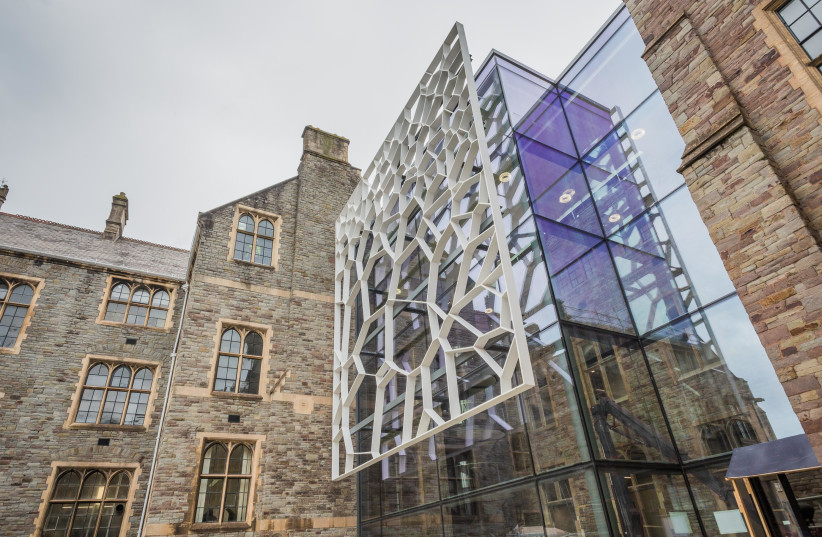A UK tribunal has ruled that a sincere and coherent opposition to Zionism is a protected belief that cannot be the reason for an employee’s termination, in a years-long case that pitted academic freedom against a Jewish community’s perception of antisemitism at the University of Bristol.
“It is emphatically not our role,” the tribunal wrote in its unanimous decision, “to express any view as to the merits on either side of the Zionist, or indeed the wider political, debate.”
But, finding that Miller’s anti-Zionist views were sincerely held, sufficiently coherent, and, as the law requires, “compatible with the rights of others and worthy of respect in a democratic society,” the tribunal ruled that this point of view could not be the basis for a professor’s dismissal.
Anti-Zionism can now be counted alongside veganism, a belief in Scottish independence, ‘gender critical beliefs', and opposition to critical race theory as philosophical beliefs found in court to be protected under the UK’s Equality Act of 2010.

Professor called JSocs lobbying groups for a "violent, racist foreign regime"
David Miller, a professor of political sociology at the University of Bristol, was fired in 2021 after his verbal attacks on the university's Jewish Societies as “political lobby groups overseen by the Union of Jewish Students [UJS], which is constitutionally bound to promoting Israel,” raising what Miller called “a real question of abuse here - of Jewish students on British campuses being used as political pawns by a violent, racist foreign regime engaged in ethnic cleansing.”
Miller charged that “The UJS’ lobbying for Israel is a threat to the safety of Arab and Muslim students as well as of Jewish students and indeed all critics of Israel.” The comments were made in an article titled ‘We must resist Israel’s war on British universities,’ published by the anti-Israel website Electronic Intifada.
One professor involved in the internal disciplinary discussions wrote in an email that “the claim that Jewish students are pawns of the Israeli government potentially fosters antagonism towards them on the part of other students, especially those who are pro-Palestinian. Such antagonism is likely to lead to online and perhaps direct abuse. It certainly fosters antisemitism. It is, therefore, a threat to the mental health and potentially the physical safety of Jewish students.”
Miller’s Electronic Intifada article came in the wake of controversy over his lectures, in which the professor assailed Zionism as an inherently racist movement that is partly responsible for Islamophobia in the United Kingdom. The lectures, delivered as part of his undergraduate courses “Harms of the Powerful” and “Understanding Terrorism,” were the subject of a complaint by Jewish students who said they “were extremely upset by hearing and seeing what they felt to be an antisemitic lecture.”
Jewish students and their allies alleged that Miller’s comments met the criteria for antisemitism set out in the International Holocaust Remembrance Association’s (IHRA) definition, which includes “denying the Jewish people their right to self-determination, e.g., by claiming that the existence of a State of Israel is a racist endeavor.”
Miller believes that, in his words: “Zionism is and always has been a racist, violent, imperialist ideology premised on ethnic cleansing. It is an endemically an anti-Arab and Islamophobic ideology [that] has no place in any society.”
The university did not, however, recognize the IHRA definition as exclusively authoritative at the time, and the tribunal determined that there is room for debate over the particular contours of antisemitism, such that even if the university had committed itself institutionally to the IHRA definition, an opposition to Zionism that did not cross into a straightforward hostility to Jews as Jews could still meet the criteria of a protected characteristic.
At issue in the case was not merely the question of protected characteristics as a general matter of workplace discrimination, but also the question of academic freedom in a university setting in particular.
Miller compared his situation to that of Professor Steven Greer, who was investigated by the university after the University of Bristol Islamic Society (Brisoc) accused the professor of “discriminatory remarks and Islamophobic rhetoric” for comments made in Greer’s optional course, “Human Rights in Law, Politics and Society.”
In a 2021 article, Greer was quoted as saying, “Militant minorities are increasingly intent on dictating the content and delivery of university education through vinification [sic], intimidation and threats, charging that Brisoc’s “purpose is to silence lawful and legitimate opinion simply because they disagree with it.”
“At the heart of the controversy,” Greer wrote in a separate article, “lies a fundamental failure, on the part of BRISOC and others, to appreciate the difference between ‘Islamophobia’ and responsible, measured and evidence-based critical engagement with Islam.”
The University ruled in Greer’s favor.
Universities are ground zero of fights over anti-Zionism and Jewish safety
Miller’s lawyers hailed the judgment as “a landmark case [that] marks a pivotal moment in the history of our country for those who believe in upholding the rights of Palestinians.” Meanwhile, the University of Bristol said that it “acknowledges the judgment of the Employment Tribunal but is disappointed with its findings.”
Universities have long been a battleground in fights over anti-Zionism, antisemitism, and freedom of speech, tensions that have come to a boil since Hamas's October 7 attack on Israel prompted waves of support on college campuses, and antisemitic incidents shot up, prompting charges of hypocrisy and negligence on the part of university administrators.
